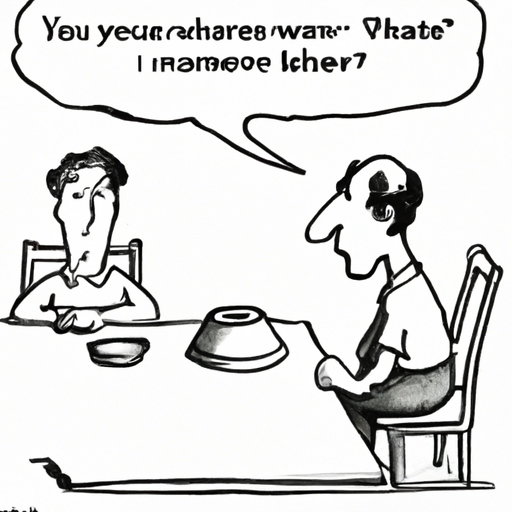Introduction
You may have noticed that your beloved pet has suddenly lost interest in their food. This is not an uncommon occurrence, but it can be a source of great worry for you as a caregiver. Before you panic, it’s important to understand that there are several reasons why dogs stop eating.
1. Health Issues
One of the most common reasons why your dog might stop eating could be health-related. Dogs, just like humans, can lose their appetite due to various health issues:
- Digestive problems: If your dog is suffering from a stomach upset or gastrointestinal problems, they might refuse to eat.
- Dental problems: Issues with teeth or gums can make eating painful for your dog, leading to a loss of appetite.
- Serious illnesses: Conditions like cancer or kidney disease can also cause a loss of appetite in dogs.
If your dog continues to refuse food for more than a day, it’s crucial to consult with a vet.
2. Behavioral Issues
Sometimes, your dog’s refusal to eat might not be a physical issue, but a behavioral one. These could include:
- Stress or anxiety: Changes in the environment, like moving to a new house or the addition of a new pet, can cause stress in your dog, leading to loss of appetite.
- Preference for human food: If you’ve been giving your dog treats from your plate, they might begin to refuse their regular dog food.
As a caregiver, understanding your dog’s behavior can help you address these issues effectively.
3. Aging and Life Stages
Dogs’ eating habits can change as they age. Puppies and younger dogs usually have a healthy appetite and eat more frequently. However, as they get older, their metabolism slows down, and they might eat less.
- Puppies: Need several small meals a day.
- Adult dogs: Typically eat two meals a day.
- Senior dogs: Might only eat one meal a day.
| Life Stage | Meal Frequency |
|---|---|
| Puppy | Several times a day |
| Adult | Twice a day |
| Senior | Once a day |
4. Food Quality and Type
The quality and type of food you provide can also affect your dog’s appetite. If you’ve recently changed the brand or type of food, your dog might refuse to eat because they don’t like the new taste or texture.
- Dry food: Some dogs might find it boring and unappetizing.
- Wet food: While it’s more palatable, it can sometimes lead to dental issues.
Balancing your dog’s diet with a mix of dry and wet food can help ensure they get all the necessary nutrients while keeping it interesting for them.
5. Boredom
Yes, dogs can get bored with their food! If you’ve been feeding them the same thing day in and day out, they might simply be bored and looking for some variety.
Try introducing new foods gradually, or adding some healthy extras to their regular meals to entice them.
FAQ
Q: How long can a dog go without eating?
A: Dogs can go without food for about 5 days but only under close veterinary supervision. It’s not advised to let your dog go without food for more than a day without consulting a vet.
Q: Can I force my dog to eat?
A: Forcing your dog to eat is not the best solution. It’s important to figure out the root cause of their loss of appetite and address it appropriately.
Q: Should I change my dog’s food if they stop eating?
A: A sudden change in food can sometimes cause a loss of appetite. If your dog has stopped eating their regular food, consult with a vet before making any changes to their diet.
Remember, as a caregiver, your pet’s health and happiness are in your hands. Understanding why your dog might stop eating is the first step to helping them.



